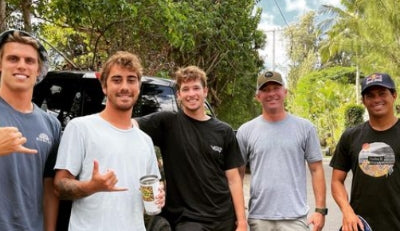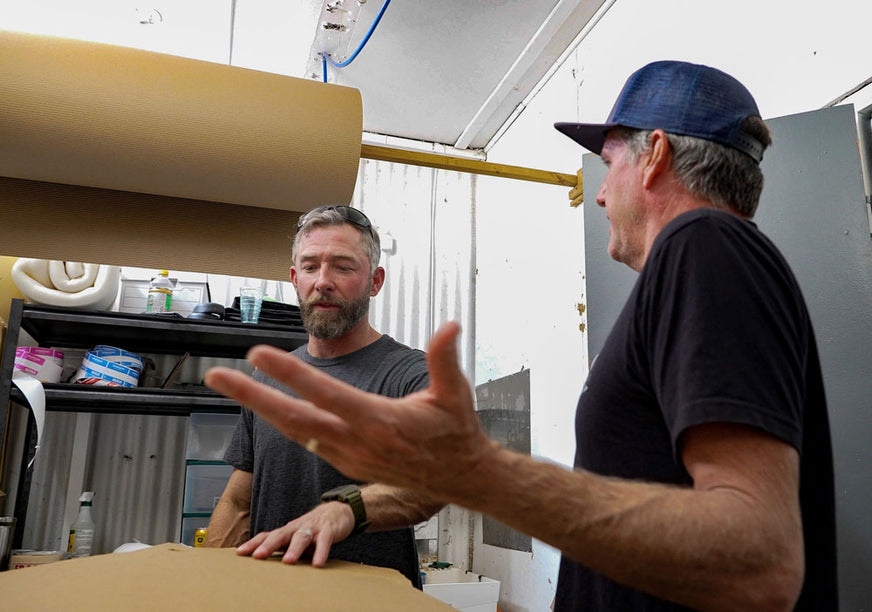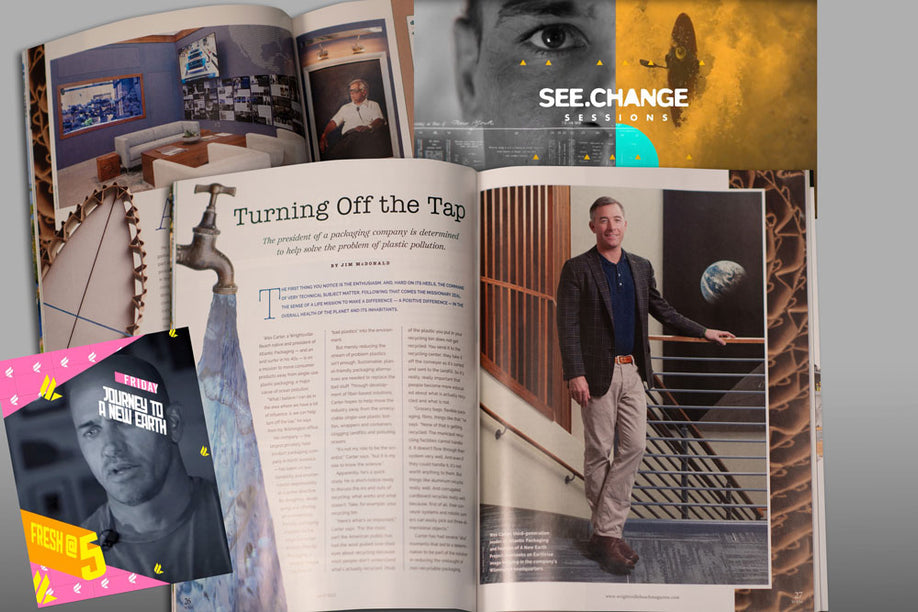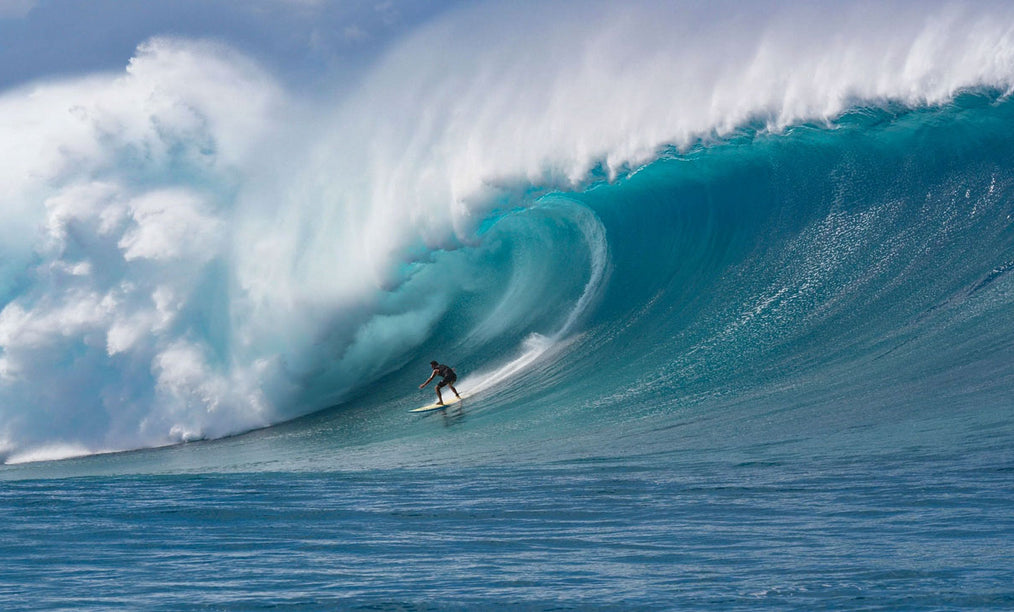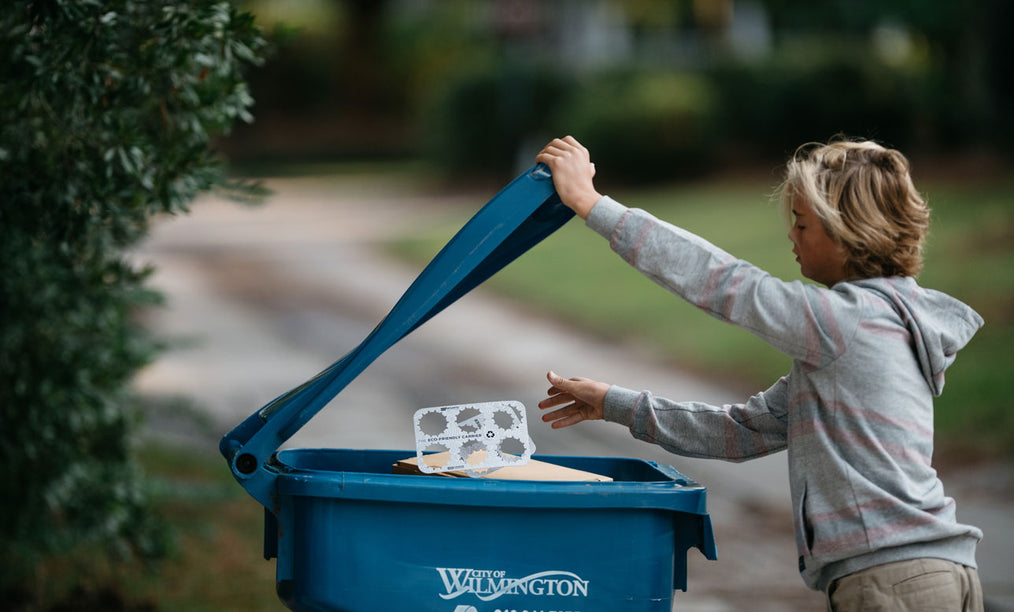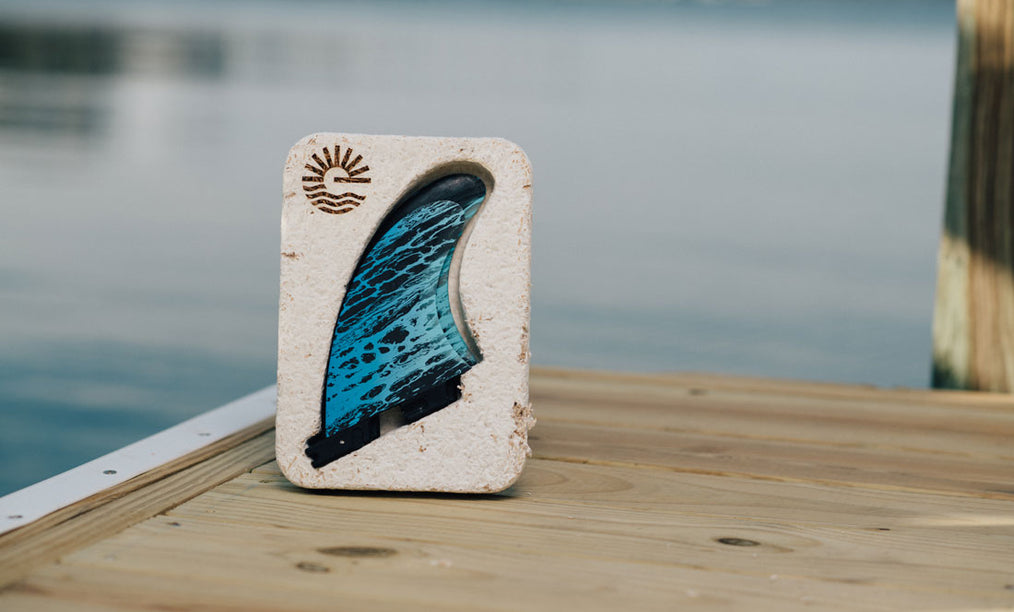It's hardly news that our global reliance on single-use plastics is a pressing problem. Since the 1950s, humanity has produced over 9.1 billion tons of this stuff, and more than half of that has been in the past decade alone.
Today, the damage to our environment and our health is immeasurable, because we're just beginning to realize the lasting damage of microplastics.
Packaging is roughly 40% of this single-use plastic problem.

Today, many developing and middle tier countries are drowning in plastic waste because proper waste management is, quite simply, a luxury they can't afford. As a result, beaches, lakes, and rivers are choking on the plastic that escapes into nature.
Those of us who live in highly developed economies are largely blind to these ills, mostly because of the weekly garbage truck visits we take for granted. We assume we're doing our duty by sticking our recyclables in our blue bins. Yet here's the unsettling truth: our recycling rate when it comes to plastic is abysmal. The OECD's latest report noted that the US recycling rate of plastics has dropped to 4%. The highest it ever reached was 9%.
Reality Check: This is a problem we've exported to the world
Those of us in highly developed countries don't have to deal with the brunt of this problem, but it's a problem we've created. Look closely at those brands that are selling plastic into markets that don't have waste management. Those are our brands, launched in our backyards, who grew into multinational behemoths using our dollars. We are a huge part of the problem, and we have a responsibility to fix it.
Today, our packaging is outliving our products not by months or years, but likely centuries.
Dramatically improving our recycling system is doable, but no amount of recycling alone will get us out of this mess. Similarly, all the beach and river cleanups we're doing are wonderful, and necessary, but they're not long term solutions. They're as durable as dusting off our furniture or brushing our teeth.
Shutting Off the Tap
When your bathtub was overflowing, you don't reach for a towel; you turn off the tap. The solution to the plastic pollution problem is the same. We need to shift way from our current "take, make, dispose" mentality, and that's exactly what Extended Producer Responsibility (EPR) programs are about.

Extended Producer Responsibility
In 2022, California passed the most ambitious EPR bill to date. SB54, the Plastic Pollution Reduction and Producer Responsibility Act.
The target goal put forth by SB54: By 2032, all packaging in California must be recyclable or compostable.
In order to accomplish this several major steps are being taken, and the first is being 100% transparent about what's recyclable, and what isn't. That was the motivation behind SB343, a Truth in Labeling Law that passed about nine months before SB54.
Step 1: Getting Honest about Our Recycling
Today, far too many items that carry the recycling logo simply aren't being recycled at any kind of scale. Thanks to the passage of SB343, by 2025, if a particular material isn’t being recycled 60% of of all recycling centers in the state, it will no longer be allowed to boast a "recyclable" label. This goal here is simple: demystify recycling, and make the process clearer for consumers.
In addition, there are new stringent certification standards for materials to be considered "compostable" as well.
Step 2: Shift the Cost Burden of Waste Management to Plastic Producers
The monumental shift of EPR legislation is where the cost burden falls. Going forward, the producers who make and sell plastic products will shoulder the cost of managing the waste they create, removing that cost from rate-payers and local municipalities.
Producers who sell in California will have to join what's called a Producer Responsibility Organization (PRO). That PRO, which is mandated to be a 501C3, will be responsible for funding and implementing a plan that achieves the bill's ambitious plastic pollution reduction targets.
The goal of these targets is to decreasing material production, and keep materials in circulation for longer, increase refill and reuse options, and facilitate new designs and technology that take the end-of-life into consideration.
The funds raised to pay for all of this will come via material usage fees, where in the guiding principle is clear: The easier a material is to recycle at scale, the lower its fee should be. Materials that don't stay in circulation will face higher fees.
Oversight of the PRO, and its ability to meet specific targets, will be led by Cal Recycle, which has the authority to strip and replace PRO leadership if they're failing.
The Broader Impact
California isn't just any state—it’s an economic powerhouse. If it were a country it would be the world's fifth largest. The decisions made here can set a precedent globally, ushering in more sustainable practices. The ripple effects of this shift could be transformative. Designers will now have incentives to think beyond the shelf life of a product. The PRO will also contribute significantly, dedicating 5 billion dollars to support disadvantaged communities in combating plastic pollution.

The Next Hurdle
As with any major shift, there are big hurdles ahead. It's imperative that the execution of this bill reflect its intent, because failure isn't an option.
There's a lot of hard work is ahead, especially between now and 2027, when this bill really starts to take effect. Defining covered material specifics, understanding rates, revamping recycling infrastructures, ensuring equitable benefits for cities, and raising public awareness are all crucial steps on this journey.
Here at A New Earth Project, we're extremely committed to keeping our eyes on this process, and keeping you up to speed. Our goal here, first and foremost, is to help any company, big or small, looking to make the shift to more sustainable solutions.
For transparency purposes, you should know that our movement, led by a collection of outdoor enthusiasts and enlightened brands, is powered by Atlantic Packaging, North America's largest privately held packaging solution firm, which has been around for 85 years. Atlantic's sustainability efforts are the most ambitious in the business.
Our founder, Wes Carter, is the president of Atlantic Packaging. He's an avid surfer, snowboarder, fisherman, and diver, leveraging his unique position in the supply chain to impact change. As the third generation leader, cleaning up the packaging industry is a life mission.
Our big picture goal here is to rid the world's oceans, lakes and rivers of plastic pollution. And we salute all of you out there working hard to do the same.
We're very proud that Wes Carter was recently appointed the advisory board of SB54, where he will work hand in hand with producers, waste haulers, recyclers, community organizations, and municipalities to ensure the spirit of this bill is followed.
There are many questions that still need answers, and we'll be the first to let you know when we have them. In the meantime, it's never too early to prepare for this new packaging future, so hit us up if you have any questions.

